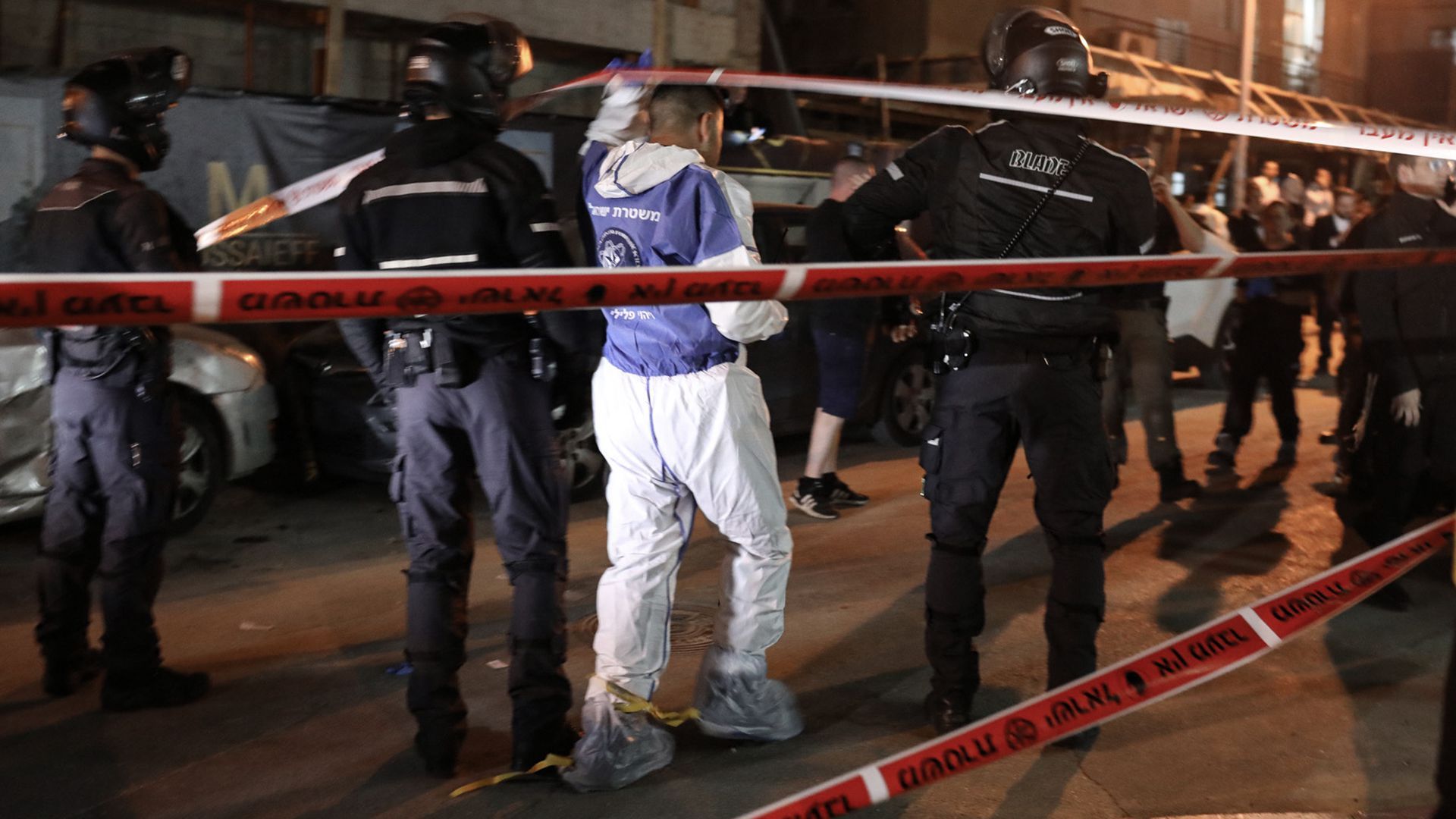Wave of terror attacks is Bennett's biggest test
Add Axios as your preferred source to
see more of our stories on Google.

Security forces stand at the scene of a shooting attack in Bnei Brak. Photo: Ilia Yefimovich/Picture Alliance via Getty Images
The wave of terror attacks that have killed 11 Israelis in the last week is the biggest test so far for Israeli Prime Minister Naftali Bennett and his fragile coalition.
Why it matters: If the attacks continue, they could lead to the collapse of Bennett's 10-month-old coalition government, which is made up of right, left and center parties, including an Arab party.
Driving the news: The first attack took place last Tuesday when police said an Arab Israeli man who had previously confessed to supporting ISIS killed four Israelis in Beersheba.
- On Sunday, attackers identified by police as two men from the Arab city of Umm al-Fahm shot and killed two Israelis in Hadera. ISIS claimed responsibility for the attack.
- The third attack took place Tuesday night when police said a Palestinian from a village in the West Bank who was in Israel illegally shot and killed five Israelis in the city of Bnei Brak near Tel Aviv. No organization has claimed responsibility.
The first two incidents shocked Israeli society, as ISIS-inspired attacks are rare in Israel and because the assailants had Israeli citizenship.
- They also took place as Israeli leaders engaged in diplomatic meetings with its allies. Bennett had a summit with the leaders of Egypt and the United Arab Emirates several hours before the first attack.
- Shortly before the second attack, Foreign Minister Yair Lapid had opened the Negev summit with Secretary of State Blinken and the foreign ministers of Egypt, Morocco, Bahrain and the UAE.
Between the lines: Opposition leader Benjamin Netanyahu and his supporters blamed the government for the attacks.
- Some on the right also criticized Bennett and Lapid for the diplomatic meetings, saying they were wasting their time on "peace summits," while at the same time projecting weakness and neglecting Israeli society.
- Adding to the criticism was the fact that Bennett has been less visible to the public and limited in his ability to hold meetings after testing positive for COVID-19 earlier this week.
What they're saying: Bennett has condemned the attacks, saying last night that the country "faces a wave of murderous Arab terrorism."
- "We will fight terrorism with an iron fist," he added.
- He also convened the Security Cabinet today for the first meeting on the wave of attacks.
The big picture: For years, personal security was one of the main issues Israelis voted on. A feeling of insecurity among the public could erode the very narrow base of support the government has.
- When the government was formed last year, it vowed to maintain the status quo on many controversial issues, including the Israeli-Palestinian conflict. Now, it appears the government won’t have any choice but to take some kind of action.
What to watch: Bennett’s challenge will be to unite the different members of his government around a common policy for restoring security they can all support.
